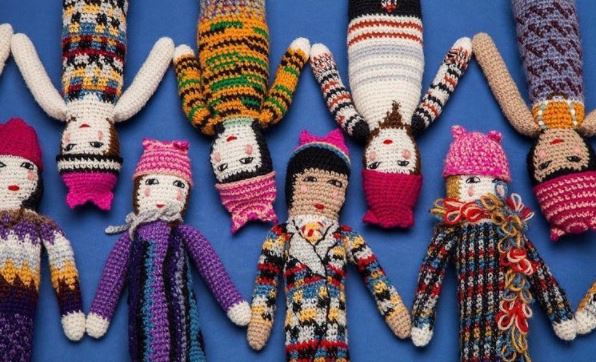
It is perhaps no surprise that both TIME magazine and the Financial Times have chosen the women who have spoken out against sexual harassment as their people of the year. From snowball effect to avalanche, 2017 has been the year in which women have individually and collectively spoken out on the abuse that has become so ingrained, and worse, accepted in our society for so long.
Whereas the UK’s Financial Times focuses on Susan Fowler, “the software engineer who lifted the lid on sexual harassment at Uber” back in February and “inspired women to speak out” (long before the Weinstein allegations came to the fore), TIME magazine in the US collectively nominates all the women who have spoken out against harassment and abuse – from Hollywood actresses to farm workers. Both articles offer comprehensive coverage of the “Me Too” movement and how it has created a cultural shift.
The “Me Too” movement has gained extraordinary momentum this year however it was founded a decade ago by activist Tarana Burke. As with any political movement, real change takes time. It’s a movement that has (forgive the pun) touched everybody. There are few, if any adult women who haven’t experienced some form of sexual harassment. What is so shocking is not just the scale of the abuse but the way in which it has been become so normalised and how women have frequently been implicated as somehow responsible for the actions of abusive men.
2017 has been a massive wake-up call. Perhaps the greatest impact of the “Me Too” movement has been to highlight the hypocrisies in all of us. We have been encouraged to consider, not just what constitutes sexual harassment or abuse and how we should confront it, but also how we view and treat each other; and, even more uncomfortably, our complicity in perpetuating a culture in which harassment has in many cases gone unchecked.
It is important and necessary that women come together to speak out. Women’s voices need to be heard, not just as catharsis for long-suppressed pain and anger, but also to help create long-lasting social change. While women are rightly taking the lead, harassment is a collective issue which is why everyone needs to be on board.
The actor Matt Damon recently came under fire for his arguably unwise comments regarding sexual harassment with actress Minnie Driver speaking out to correct him in the Guardian. “Men simply cannot understand what abuse is like on a daily level,” she says “and should not therefore attempt to differentiate or explain sexual misconduct against women.” It’s a valid point and Driver goes on to explain the nuances of sexual harassment. But she then goes on to say, “The time right now is for men just to listen and not have an opinion about it for once.” Given the context, I can understand Driver’s frustration and I agree that men (moreover everyone) needs to listen, however denying men an opinion is simply another form of oppression.
Journalists have lined up to tell Matt Damon to shut up and go away because they disagree with what he is saying, rather than seeing it as a golden opportunity to enlighten all genders on the reality of abuse. Damon’s somewhat banal comments have shown a lack of understanding but at least he is engaging with the subject; it seems more that he is trying to make sense of an unprecedented situation (as we all are). Like it or not, his misguided comments have helped to further the debate.
Opinion within the “Me Too” movement is moving so fast that it can feel both overwhelming and hard to know what is the right way to respond. Take, for example, the Royal Court theatre’s recent decision to cancel its production of Rita, Sue and Bob Too (due to sexual abuse claims surrounding its director) only to reinstate it as a result of public outcry: the theatre was accused of suppressing a working-class female voice and by the same token, punishing women for the acts of men. It could be seen as hypocritical and cowardly for a so-called avant-garde theatre to drop a play the minute it gets too close for comfort, suddenly desperate not to offend. But perhaps the Royal Court deserves some credit for listening to the public and subsequently reversing its decision. Rita, Sue and Bob Too couldn’t be more timely in its subject matter, and whilst the circumstances may be uncomfortable, it is nonetheless an opportunity to further the conversation.
I don’t agree that everybody should have the same opinion. As the writer Nell Zink said at Edinburgh International Book Festival earlier this year (her latest novel Nicotine is about protest), “Oppression brings people together where otherwise they would have nothing else in common.”
Nor do I think people shouldn’t be allowed to make mistakes, especially so given the complexity of the subject. Labelling other women as bad feminists or shunning men with questionable opinions is not particularly helpful. People like Lena Dunham don’t deserve to be vilified for their seemingly hypocritical actions when they are prepared to acknowledge their fallibility. Ironically, perhaps Dunham’s greatest achievement has been to show women as imperfect beings in the drama series Girls, to make it OK for women to make mistakes.
The “Me Too” movement has opened our eyes and forced us to confront some uncomfortable truths. I’m glad TIME magazine chose to put a group of women on the cover as it emphasises the collective spirit of the movement – one that spans all classes and backgrounds. If the “Me Too” movement is going to continue to flourish, it needs to be inclusive and to allow space for debate.

